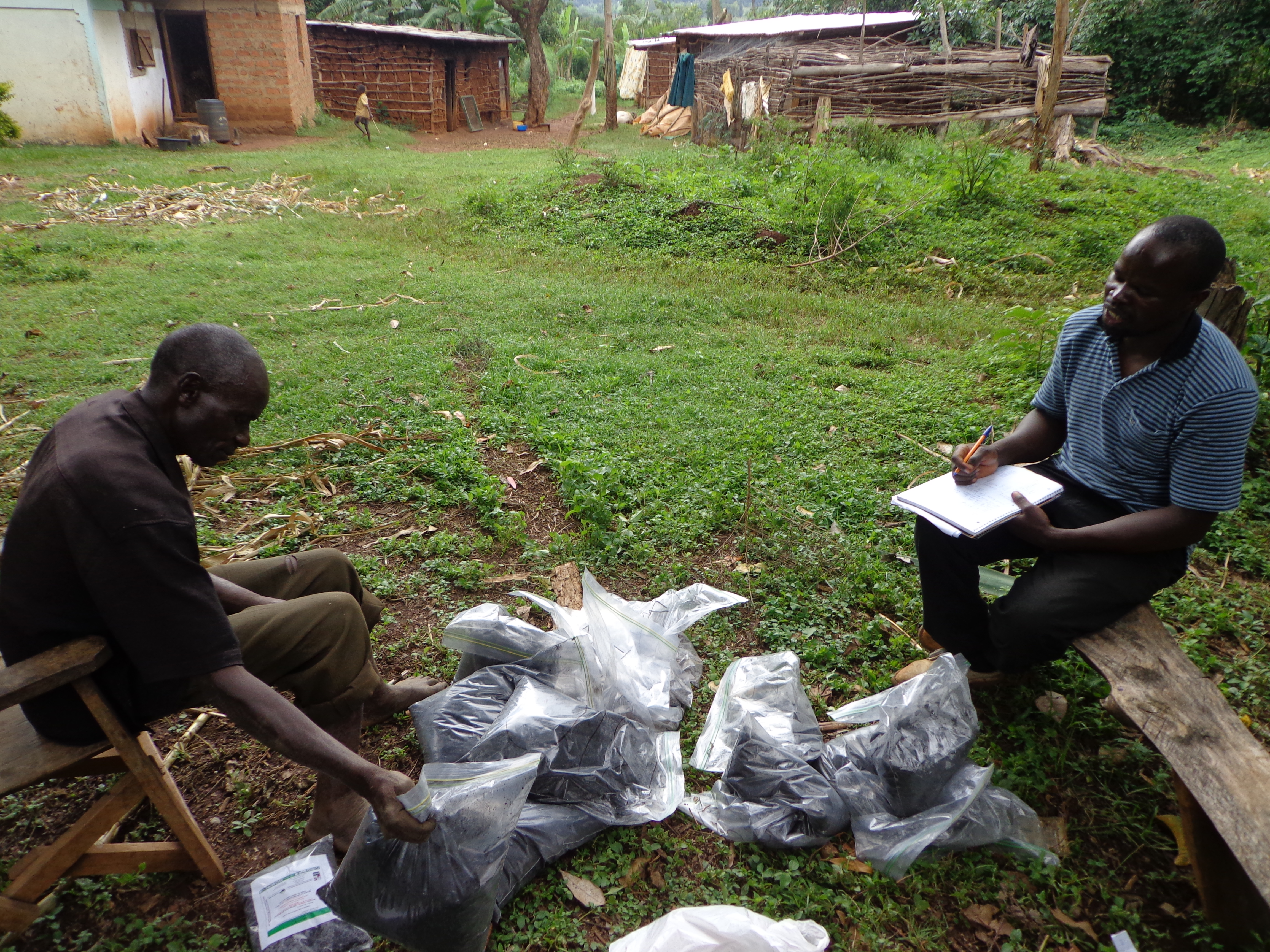A recent blog post described how farmers in the developing world form perceptions about soil fertility, and how those perceptions correspond with high-resolution interpolated data and actual on-farm soil testing. They demonstrate, perhaps unsurprisingly, that farmer perceptions are primarily driven by past crop yields, a finding also observed by Marenya, Barrett, and Gulick (2008). Past yields offer a lagged information signal to farmers, but farmers are not necessarily able to perceive which—if any—particular nutrients are deficient in their soil. This is especially important for resource-constrained farmers, as they must determine which inputs are best for their soils based on this insufficient information. For example, not all inputs are appropriate for every soil type: nitrogen fertilizers are generally ineffective when applied to soils with low organic carbon. Low carbon soils may instead require additions of manure or crop residues to improve soil fertility (Vanlauwe et al. 2002; Marenya and Barrett 2009a,b). The resulting uncertainty and lack of an accurate measure of farmer’s soil type and nutrient levels can lead to inefficient adoption or use of fertilizer.
My dissertation fieldwork, which will begin in June 2016 in western Kenya, will attempt to use experimental methods to determine whether information transfers to farmers in the form of soil test results affect demand for particular agricultural inputs. I will conduct surveys and experimental auctions (based on Becker-DeGroot-Marschak) with two individuals from each of approximately five hundred randomly selected households across twenty villages in Busia, Kakamega, Bungoma, and Nandi counties of Kenya. The experimental auctions will be conducted twice in the same sitting, with farmers learning results from their soil tests in between the two rounds. This methodology should allow the collection of incentive compatible willingness to pay (WTP) measures for approximately seven agricultural fertilizers (both organic and inorganic) before and after the provision of soil testing information.

After receiving the soil test information, farmers update their beliefs as to whether a particular input is an effective match for their own soil type and nutrient level. Continuing the example from above, if farmers learn that their soil is low in organic carbon, this will likely increase their WTP for organic inputs and decrease it for nitrogen inputs. In addition, as we model the learning process as a Bayesian process, the improvement in the accuracy of their beliefs (reduction in variance or uncertainty of their beliefs) may increase WTP of all inputs for individuals, holding other effects constant. This behavioral response is often seen in experimental economic studies, where even negative information about a product can increase WTP by reducing uncertainty (e.g. Liaukonyte et al. (2015)). This leads to two possible effects of the information transfer at the time of the experimental auctions, which we will seek to determine empirically:
1) WTP estimates become more spread out. As farmers learn about compatibility between particular inputs and their farm’s soil quality, they will be willing to pay more for inputs that are appropriate matches for their soil and less for those that are not effective matches.
2) Mean WTP increases for each input. This would only be possible if the effect from an increase in accuracy of beliefs is relatively strong. When farmers learn that inputs are not particularly useful for their soil, this knowledge will decrease their WTP. However, as shown in other experimental studies, the effect from decreasing their uncertainty can increase their WTP. Only if this latter effect is particularly strong will it mean that WTP increases for each input.
If information regarding exact levels of soil nutrients leads to substantial changes in farmer input demand, it may indicate that implementing widespread soil testing projects should be a policy priority. In another study, Fabregas, Kremer, Robinson, and Schilibach are attempting to determine farmer WTP for the actual soil tests and optimal levels of their subsidization. Together with this study, which looks at the effect on farmer demand for fertilizers after the provision of the soil testing information to the farmer, it is possible to form a stronger picture of the economic justifications for more widespread soil testing in SSA.
My planned fieldwork should (hopefully) allow us to examine the linkages between beliefs and behaviors regarding soils and input use on farms in western Kenya. Further, we will examine whether providing soil information to farmers in the form of the results of soil tests is an effective policy tool to change the pattern of farmer input adoption, reverse soil degradation, and improve farmer livelihoods in rural Sub-Saharan Africa.
Funding for this project provided by: The Atkinson Center for Sustainable Development, a U.S. Borlaug Fellowship, and several grants and fellowships from Cornell University including: a Frosty Hill Fellowship, an Andrew Mellon Fellowship, and an Einaudi Travel Grant. Crucial support for the project also comes from the Cornell project “Improving bean yields by reversing soil degradation and reducing soil borne pathogens on small-holder farms in western Kenya” funded by a USDA NIFA grant, and from the International Institute of Tropical Agriculture (IITA).


Sharing information through digital platforms and local knowledge hubs have proved an effective way of transferring knowledge on climate adaptation practices and agricultural related expertise to rural .